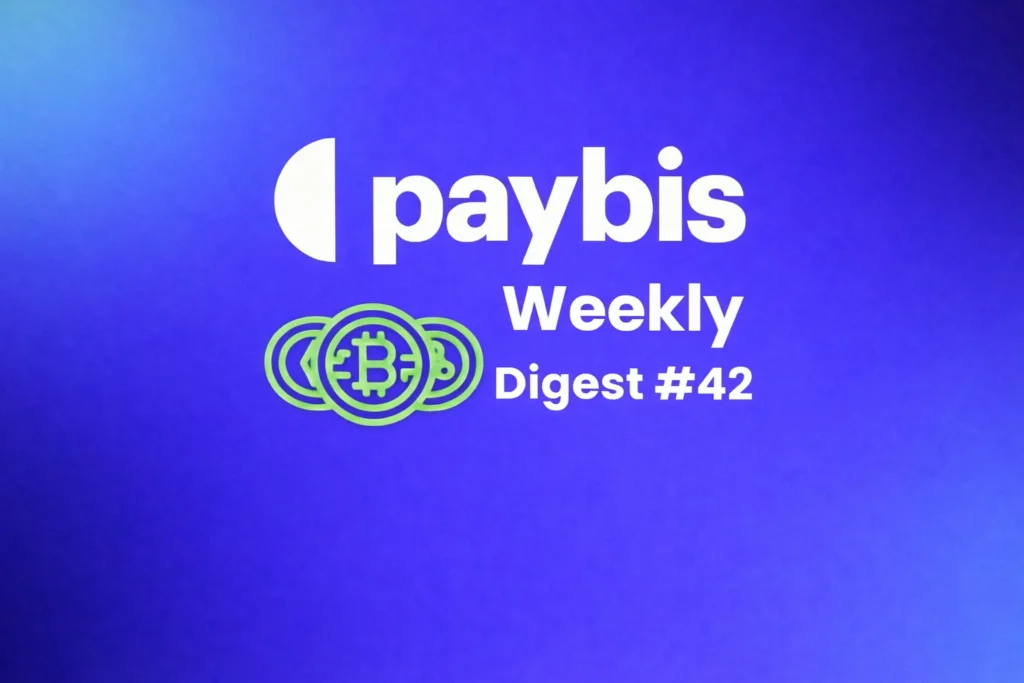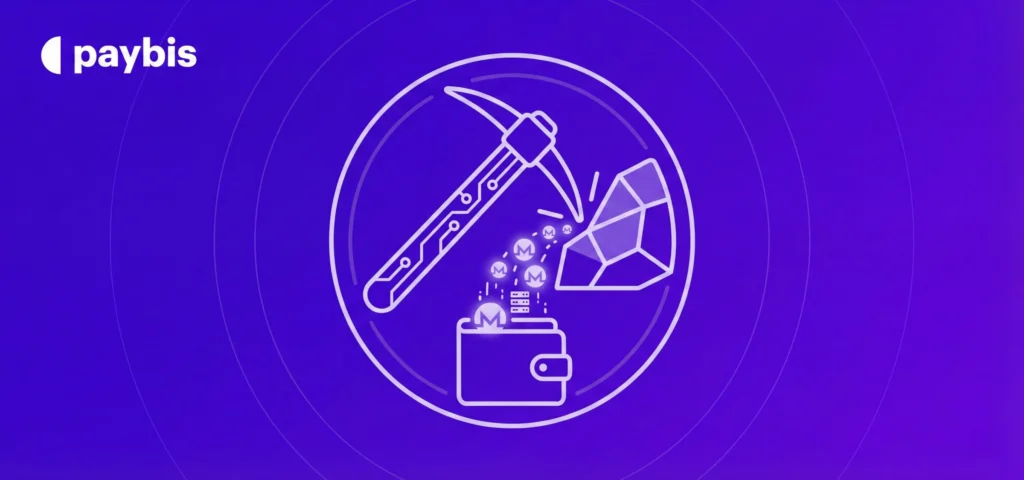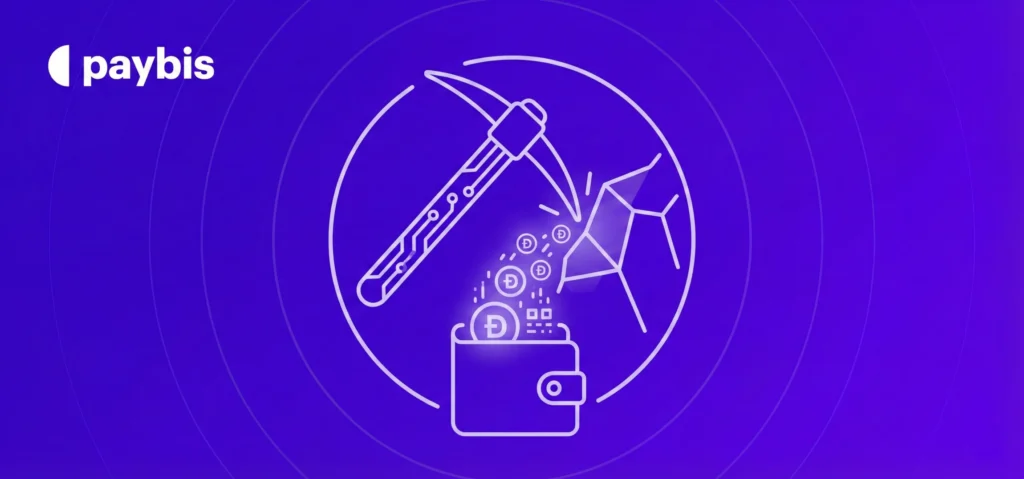How to Anonymously Send Money?
Financial transactions have become seamless, but the desire for privacy and anonymity remains a crucial concern for many individuals.
The need to send money anonymously arises from a variety of reasons, ranging from protecting personal financial information to ensuring discreet transactions in sensitive situations.
Whether it’s supporting a cause discreetly, maintaining confidentiality in business dealings, or safeguarding personal privacy, the ability to send money without revealing one’s identity has become a pressing issue for many.
“How to send money anonymously?” is a question that we are usually asked. This article will look at how money is sent anonymously and weigh the advantages and disadvantages of the methods.
DISCLAIMER: Please note that this article is intended for educational reasons only. Paybis is committed to a culture of compliance and preventing the facilitation of financial crime. We do not promote or allow illegal transactions through the use of our services.
Table of contents
- 3 Common Concerns for Sending Money Anonymously
- Methods on How To Send Money Anonymously
- Useful links
- Conclusion
3 Common Concerns for Sending Money Anonymously
1. How to Donate Anonymously?
When you send money anonymously, you have the freedom to embrace philanthropic discretion.
By remaining anonymous, you remove the desire for recognition or acknowledgment that often accompanies charitable giving. Instead, the act of giving becomes purely selfless, motivated solely by the desire to make a positive impact on the lives of others or contribute to a cause you care about deeply.
Anonymously sending funds can be advantageous for those involved in political or activist movements. It provides a layer of protection and enables financial support for causes without revealing your identity or potentially facing any negative consequences for your involvement.
2. How to Pay for OnlyFans Anonymously?
OnlyFans is a provider of gated content that enables creators to deliver content to their followers on a subscription model. It is popularized mainly for adult content and creators in the adult entertainment industry.
While adult content is legal in several parts of the world, it is usually kept private to the individual. Individuals may also find it uncomfortable if their bank statements or credit card bills show adult content as one of the items.
Hence, they might want to pay for adult content anonymously. But if you are wondering how to pay for OnlyFans anonymously, it is not possible, as the platform requires your banking details.
3. How to Engage in Legal Financial Activities Anonymously?
By sending money anonymously, you can safeguard your financial privacy. It helps prevent your personal information, such as your identity and financial details, from being linked to the transaction, thereby minimizing your digital footprint associated with the transfer.
For those concerned about their overall online presence, Aura’s digital footprint checker can also provide insights into what personal information is publicly available and linked to them.
There are many ways to engage in legitimate business anonymously and avoid solicitation of any kind. Using cryptocurrencies, cash and prepaid cards are a few options.
Methods on How To Send Money Anonymously
1. Using Privacy Coins
Privacy coins are a type of cryptocurrency designed with anonymity in mind. They use various techniques like stealth addresses and ring signatures to hide transactional data, making it difficult for anyone to trace the source of the funds. Popular privacy coins include Monero (XMR), Zcash (ZEC), Dash (DASH), and Verge (XVG).
Advantages of Privacy Coins
- Transactions are nearly impossible to trace, enabling complete anonymity.
- User data is encrypted and untraceable, making it difficult for hackers to access user funds.
- No KYC (Know Your Customer) requirements in most cases.
- Secure networks provide privacy and security from potential attacks.
- Very reliable to send money anonymously.
Disadvantages of Privacy Coins
- The availability and utility of privacy coins are limited.
- Technical knowledge is needed to manage transactions and wallets securely.
- Transaction fees can be high at times of high network congestion
- Can be vulnerable to malicious actors exploiting the privacy features.
- Can be a source of negative public perception.
2. Bitcoin ATMs
Bitcoin ATMs, also known as BTMs (Bitcoin Teller Machines), are physical machines that allow users to sell or buy Bitcoin without an ID (there are exceptions). You can deposit cash, and to maintain anonymity, you can specify that you don’t have a Bitcoin address, and the machine will generate a new paper wallet for you. By importing the private key from the paper wallet, you can send Bitcoin without revealing your identity.
Advantages of Bitcoin ATMs
- Purchase and send Bitcoin with minimal personal information for anonymity.
- Enhanced security measures ensure transaction safety.
- Independent access to buying or sending cryptocurrencies, bypassing online exchanges.
- Quick acquisition or sale of Bitcoin in minutes.
- Growing presence of Bitcoin ATMs, with around 26,000 worldwide.
Disadvantages of Bitcoin ATMs
- Limited accessibility of Bitcoin ATMs in certain areas.
- Anonymous purchases are limited, and large amounts require ID.
- Technical knowledge is needed for managing paper wallets and private keys.
- Potential for illicit activities in some transactions.
- Higher transaction fees compared to online exchanges.
3. Peer-to-Peer (P2P) Exchanges
Peer-to-peer (P2P) cryptocurrency exchanges facilitate direct transactions between users without the involvement of a central authority. They allow individuals to buy and sell cryptocurrencies directly with each other, eliminating the need for a middleman. Buyers send payments to sellers, who transfer the cryptocurrency to the buyer’s wallet. These exchanges offer a decentralized and often anonymous way to trade cryptocurrencies, bypassing the need for extensive identity verification processes.
Advantages of Peer-to-Peer (P2P) Exchanges
- Enables anonymous trading, preserving user privacy.
- Direct wallet-to-wallet transactions provide fund control.
- Lower fees compared to centralized exchanges.
- P2P exchanges support diverse payment methods..
- Provides access to a global market.
Disadvantages of Peer-to-Peer (P2P) Exchanges
- Lack of regulations increases scam risk.
- Direct transactions with unknown individuals can lead to fraud.
- Lower trading volumes than centralized exchanges.
- Limited customer support compared to centralized exchanges.
- P2P exchanges may have slower transaction processing times.
Understanding Bitcoin dominance in the crypto market can help you decide whether Bitcoin or privacy-focused altcoins better serve your anonymous transaction needs.
4. No-KYC Platforms
Users can send and invest in cryptocurrencies on no-KYC crypto exchanges without disclosing any personal information or going through the Know Your Customer (KYC) procedure. These exchangers place a high value on privacy and enable users to operate anonymously without disclosing their data. While they provide comparable safety and reliability to conventional trading platforms, some No-KYC exchanges could have deposit and withdrawal price restrictions.
Learn more about what is KYC here.
Advantages of No-KYC Platforms
- Users can trade and transact without providing ID, preserving privacy and anonymity.
- Users can create accounts and start trading instantly.
- Have fewer restrictions and lower entry barriers.
- Users can typically withdraw funds more quickly.
- No KYC exchanges can cater to users globally.
Disadvantages of No-KYC Platforms
- Increased risk of fraud and illicit transactions.
- Attracts scammers due to lower entry barriers.
- Lack of KYC compliance can lead to regulatory issues.
- Limited features and services are available.
- Challenging dispute resolution for transactions and accounts.
5. Cash
Cash is widely considered the most convenient way to anonymously send money due to its inherent characteristics as it is a widely accepted form of payment in any part of the world where the internet and technology are still to reach. It also offers full anonymity as it is impossible to trace and can be used to gift and donate without putting the personal details of the sender.
Advantages of Cash
- Offers high anonymity without digital or paper trails.
- Cash payments have no transaction records or online accounts.
- Minimal information exchange between payer and recipient.
- No intermediaries or third-party services are required.
- Not dependent on technology, the internet, or electronic devices.
Disadvantages of Cash
- Inconvenient for long-distance or cross-border transactions.
- Security risks with carrying large amounts of cash.
- No formal record of cash transactions.
- Difficult to track and manage expenses without digital records.
- Limited avenues for resolution in disputes or fraud cases with cash payments.
Useful links
6. Cash App – An Untraceable Money Transfer App
Cash App is an untraceable money transfer app and mobile payment service that allows users to transfer and request money anonymously. It enables transactions using unique usernames called $Cashtags, eliminating the need to share bank account details. Cash App provides a certain level of privacy and does not disclose sensitive personal information to the receiving party.
If you’re using cryptocurrency for anonymous transactions, make sure to store your funds securely in a reliable Bitcoin wallet that prioritizes privacy and security.
Advantages of Cash App
- Offers the ability to invest in stocks and Bitcoin
- Cash App provides limited sender information (username and $Cashtags).
- Bank account information is not required for transactions.
- User-friendly interface for easy navigation.
- Offers a free debit card (Cash Card) for online and in-store purchases.
Disadvantages of Cash App
- Limited availability outside the US and UK.
- Designed for P2P transactions between individuals.
- Some transactions may have fees, like ATM withdrawals.
- Risk of security breaches, unauthorized access, or scams.
- Payment limits can be increased with verification but compromise anonymity.
7. Anonymous offshore debit cards
Offshore service providers often advertise anonymous offshore debit cards due to their perceived privacy benefits. These cards are typically not linked to the cardholder’s identity, making it difficult to trace transactions back to the individual. They are often associated with jurisdictions that have strict banking privacy laws and regulations. These jurisdictions, commonly referred to as offshore financial centers, offer banking services to individuals and businesses from around the world, emphasizing privacy and asset protection
Advantages of Anonymous offshore debit cards
- Use any local currency to withdraw cash secretly from ATMs.
- Make online or in-store purchases in secret.
- Mask personal data associated with transactions.
- Easily reload for long-term use using a bank account.
- Wire transfers from other accounts or virtual currencies can be used to top off anonymous bank cards.
Disadvantages of Anonymous offshore debit cards
- Full anonymity is not possible due to anti-money laundering regulations.
- Identification is required for banking, and your information is known by the bank.
- Anonymous debit cards complicate tracing, but each step gathers different information.
- Reloading anonymous prepaid cards usually requires a non-anonymous bank account.
- These cards are not accessible globally.
For those interested in fast cross-border payments with lower transaction visibility, you can buy XRP as an alternative to traditional remittance services.
8. Anonymous Donations
Crowdfunding sites like GoFundMe enables anonymous donations for social causes. After donating, the donor receives a receipt by email. To stay anonymous, find the email, search for “Thank you for your donation,” and click the “Add a comment” link in the “Increase your impact” section. This redirects to the GoFundMe account, where the donor can click “Edit,” select “Don’t display my information publicly,” and click “Save” to maintain anonymity.
Advantages of anonymous donations
- Anonymous donations protect personal information.
- Anonymous donations are seen as genuine altruism.
- Donating anonymously avoids scrutiny of motives.
- You want to stay hidden.
- You don’t want to get Overwhelmed by requests.
Disadvantages of anonymous donations
- Publicly endorsing a cause inspires others and expands support.
- Privacy breaches can occur despite donor protection efforts.
- Donor privacy in registered charities may be compromised.
- Media doesn’t give much attention to the cause.
- The fund might not get more donors or be in the limelight.
9. Paysafecard
Paysafecard is a prepaid credit card that allows you to make online payments without verification and the need for a bank account or sharing personal or billing information. It offers a high level of anonymity, as you don’t need to provide any personal details when making a payment using paysafecard PINs. You purchase a prepaid code in the form of a digital PIN. This PIN represents a certain monetary value that you can use to pay on thousands of partner websites. During checkout, you simply select Paysafecard as the payment method and enter the 16-digit PIN to complete the transaction.
Advantages of Paysafecard
- Paysafecard payments require no personal or financial information.
- Accepted on various online platforms, including gaming, dating, and e-commerce.
- Ideal for individuals without a bank account or card preference.
- Payment is quick, uncomplicated, with no hidden fees.
- Paysafecard has 24/7 customer service for assistance with inquiries.
Disadvantages of Paysafecard
- Combine codes or explore other payment methods for higher-value purchases.
- Paysafecard Mastercard may have annual maintenance fees.
- Used Paysafecard codes cannot be reversed or refunded.
- Only suitable for lower transaction volume.
- It cannot be used for withdrawals.
Once you’ve completed your anonymous crypto transactions, you can withdraw USDT to bank account when you’re ready to convert back to fiat currency.
Conclusion
Privacy and anonymity are essential for individuals, especially those who handle a lot of sensitive information or funds. There is no one-size-fits-all solution to secure your privacy; it depends on the level of security you need and the type of transaction you make.
At Paybis, you will be able to purchase crypto and use it to avail goods and services without performing KYC. This is a simple way to ensure your financial footprint remains yours. The Paybis platform is also PCI-DSS certified, so you can be sure your card details remain safe.
There are more ways on how to anonymously send money. The methods listed in this article should be useful to most or at least act as a starting point for research.
FAQ
How can I send money without personal information?
If you are looking for a way on how to send money anonymously, it can be achieved through various methods that prioritize the anonymity mentioned above. These options include cash, Bitcoin ATMs, no-KYC crypto platforms like Pyabis, and anonymous payment apps.
How can I send money without scamming?
Sending money without scamming requires using legal and compliant services. Above mentioned services are best for sending money. Ensure you send money to the intended recipient by double-checking their details and verifying their identity.
What is the safest way to send money?
When sending money, the safest method can vary depending on the specific circumstances and requirements. While cash can be convenient in certain situations, it’s essential to consider the risks involved, such as loss or theft.
Disclaimer: Don’t invest unless you’re prepared to lose all the money you invest. This is a high‑risk investment and you should not expect to be protected if something goes wrong. Take 2 mins to learn more at: https://go.payb.is/FCA-Info




